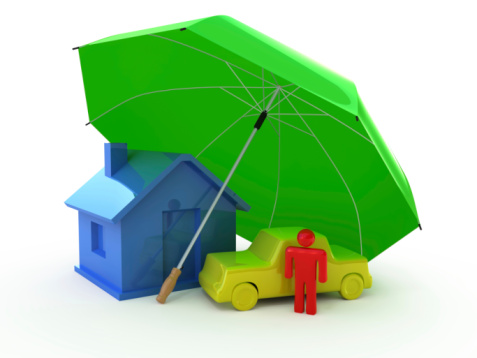Homeowners insurance covers your home, its contents, and living expenses if you are temporarily unable to live in your home due to an insured disaster. It also protects you against lawsuits for bodily injury or property damage that you or covered family members cause to other people.
Policies are specific about what is covered, says Donna Pile, 57, an insurance agent in Lexington, Ky. While a policy may cover water damage from a broken pipe, it wont cover flooding. Typical exclusions also include earthquakes, mold, lack of maintenance, and pests, such as termites. If your mortgage lender requires you to have flood or earthquake coverage, you will need to purchase separate policies for each.
Ask your agent what your policy does and doesn’t cover, and be sure to read the entire policy, Pile says.
Different types of homeowners insurance are available, but most experts recommend a replacement cost policy, which covers the cost of rebuilding your home at current construction costs.
Rebuilding in an existing neighborhood costs more than original construction, says Angelo Lobosco, 50, an insurance agent in Kinnelon, N.J. (pop. 9,365). The replacement cost is based on several factors, including local building costs and home values, and square footage, but it shouldn’t include the value of the land the home is built on.
Personal possessions also are covered by homeowners insurance, typically for about 50 percent of the amount of coverage you have on your home. For example, if your home is insured for $200,000, your belongings are insured for $100,000. If you have special valuables, such as jewelry, antiques or artwork, you may need to purchase additional insurance.
Both Lobosco and Pile advise finding an agent you’re comfortable with and then asking questions. How much of your living expenses will be covered while your home is repaired or rebuilt? Does the kind of dog you have affect your premium?
Ask about exclusions. Do you live within a mile of a body of water? If you do, your policy might not cover wind damage. Are there buried oil tanks on your property? If there are, you may be personally liable for removal and cleanup.
Facts Homeowners Should Know
- The average annual homeowners premium was $835 in 2006, according to the Insurance Information Institute.
- Often, you can lower your premium by purchasing all your insurance policies from the same source, and by maintaining a good credit score.
- The deductible must be paid every time you file a claim.
- A $500 deductible is typical. Pile advises increasing the deductible to at least $1,000, and then keeping your home properly maintained to reduce the risk of having to file claims. Increasing the deductible to $1,000 can save about $60 to $150 on your annual premium.
- Repeatedly filing claims can lead to rate increases.
- If you operate a business from your home, you need separate coverage for equipment and liability.
- Meet with your agent annually to review your policy and any changes you’ve made to your home or lifestyle. That way your policy can be adjusted to ensure that you have the proper coverage.
This article was originally published as Insuring Your Home on AmericanProfile.com.








